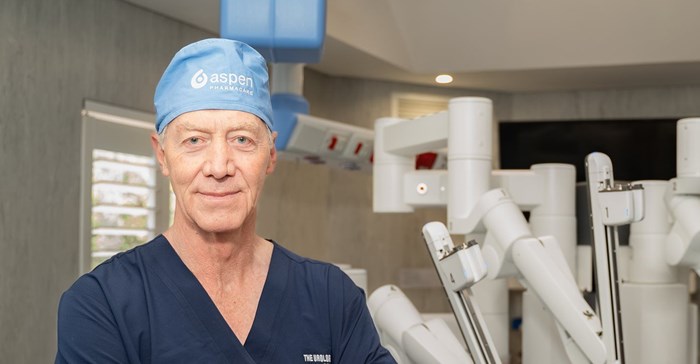The Urology Hospital in Pretoria celebrates 3,500 robotic procedures with the acquisition of its second da Vinci robot (the all-new Gen 4 X) - the first hospital on the African continent to reach this milestone.

Source: Supplied. Lance Coetzee, urologist and robotic surgeon at The Urology Hospital.
As a centre of excellence in urology in Africa - having first acquired a surgical robot in 2013 - the hospital consistently combines state-of-the-art technology with the unparalleled expertise of its specialists.
“Robotic-assisted radical prostatectomies have become the standard of care for patients undergoing prostate cancer related surgery. The biggest advantage is the precision with which the surgery can be performed, using the new da Vinci fourth generation robot. It remains a wonderful experience to be part of the robotic team that has pioneered robotic surgery in South Africa,” says Dirk Ligthelm, urologist and robotic surgeon at The Urology Hospital.“
Robotic technology is constantly evolving and changing the face of prostate cancer treatment in South Africa. This new robot provides better vision and greater precision during robotic prostatectomies and partial nephrectomies, greatly benefiting patients as the smaller instruments allow for ease of work in smaller areas, said Lance Coetzee, urologist and robotic surgeon at The Urology Hospital.
Globally cancer is the second leading cause of death, with nearly one in six deaths and more than 1.4 million new prostate cancer cases by 2020. Prostate cancer tops the list of five most invasive cancers among South African men, with one in 15 at risk as reported by Cansa (NCR 2019).
Precision medicine at its best
“Our robotic-assisted prostate surgery is advantageous to our patients as it reduces levels of post-operative side effects such as incontinence and impotence significantly compared to conventional open surgery.
"It is minimally invasive, reduces blood loss, lowers the risk of infection, and allows the patient to recover more quickly with a shorter hospital stay. We look forward to training more young surgeons with the new robot for continued surgical innovation and maximising patient care,” says Coetzee.
The da Vinci X fourth generation robot enables a broader reach than previous generations and can comfortably perform a range of complex procedures allowing more patients to benefit from its upgraded technology. The system allows for greater operating precision, easier access to difficult areas with improved magnification and three-dimensional (3D) viewing.
Procedures done robotically at The Urology Hospital include:
Prostatectomy: removal of cancerous prostate.Partial nephrectomy: partial removal of cancerous kidney.Nephrectomy: removal of cancerous kidney.Pyeloplasty: reconstructive surgery for the repair of the ureter.Sacrocolpopexy: a surgical procedure treating pelvic organ prolapse.Robotic enucleation of large clinical benign prostate.




































